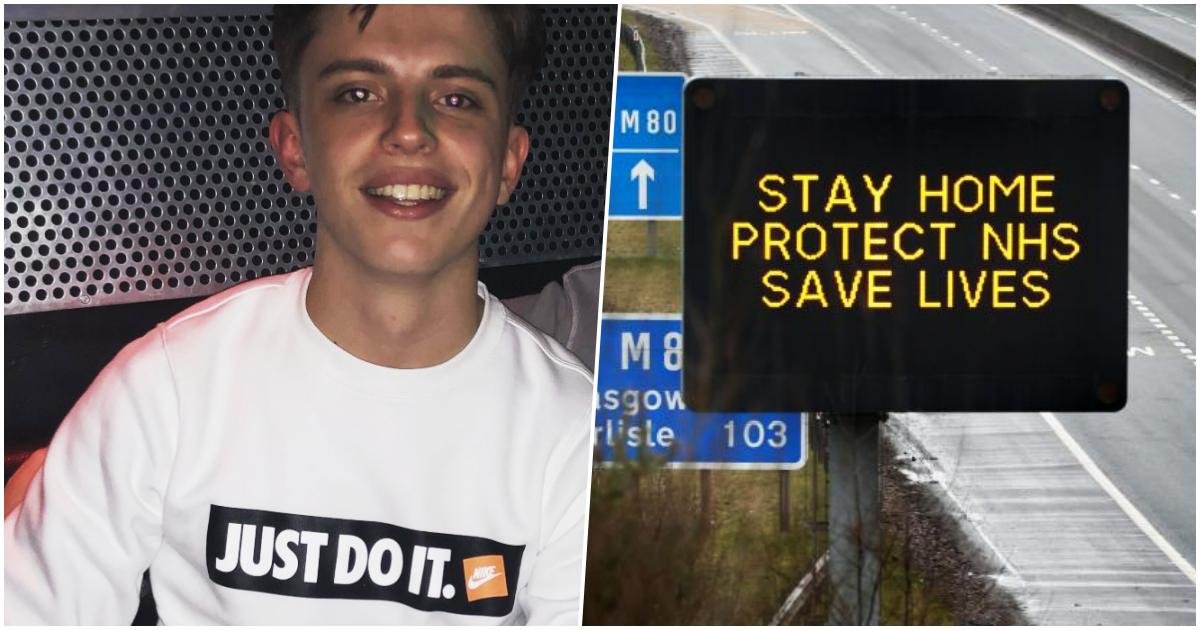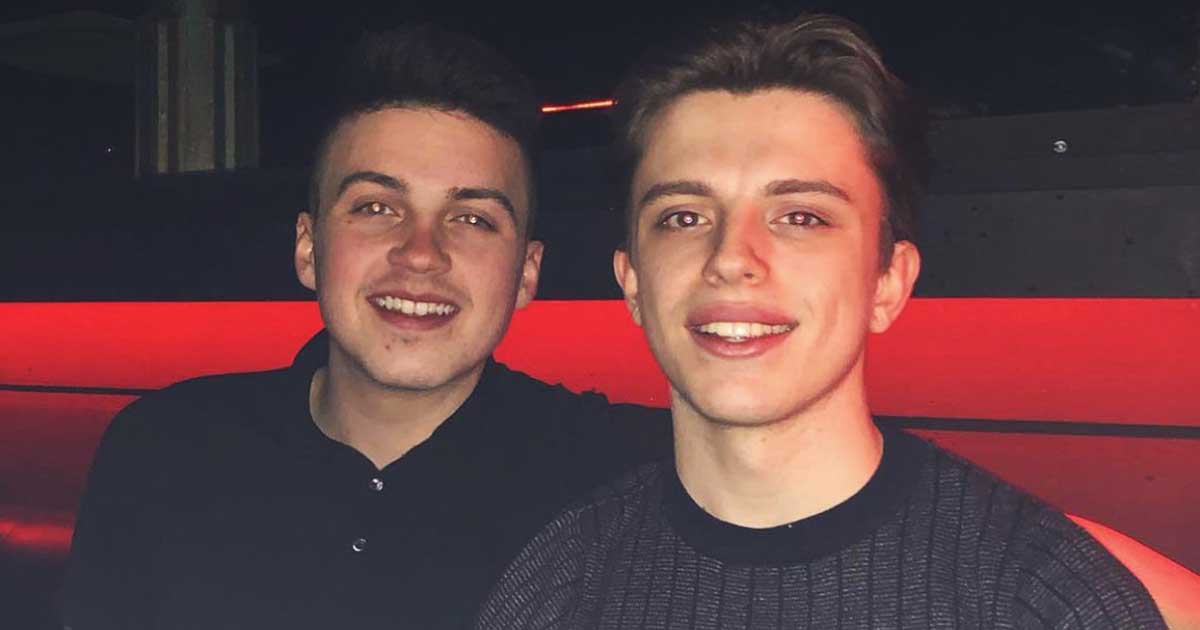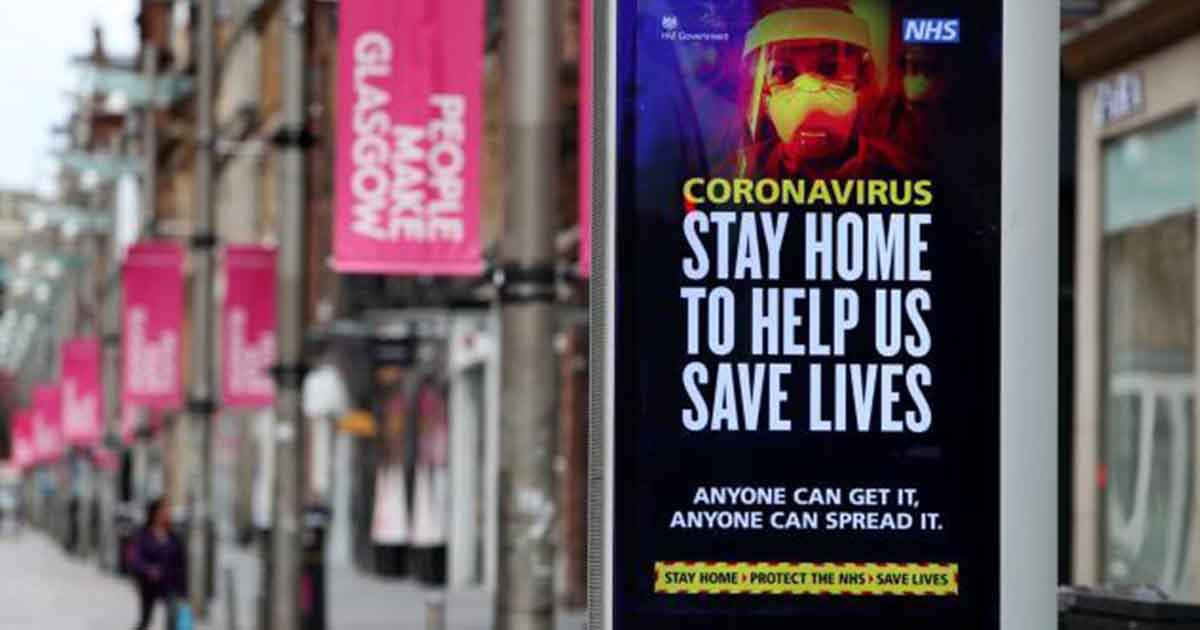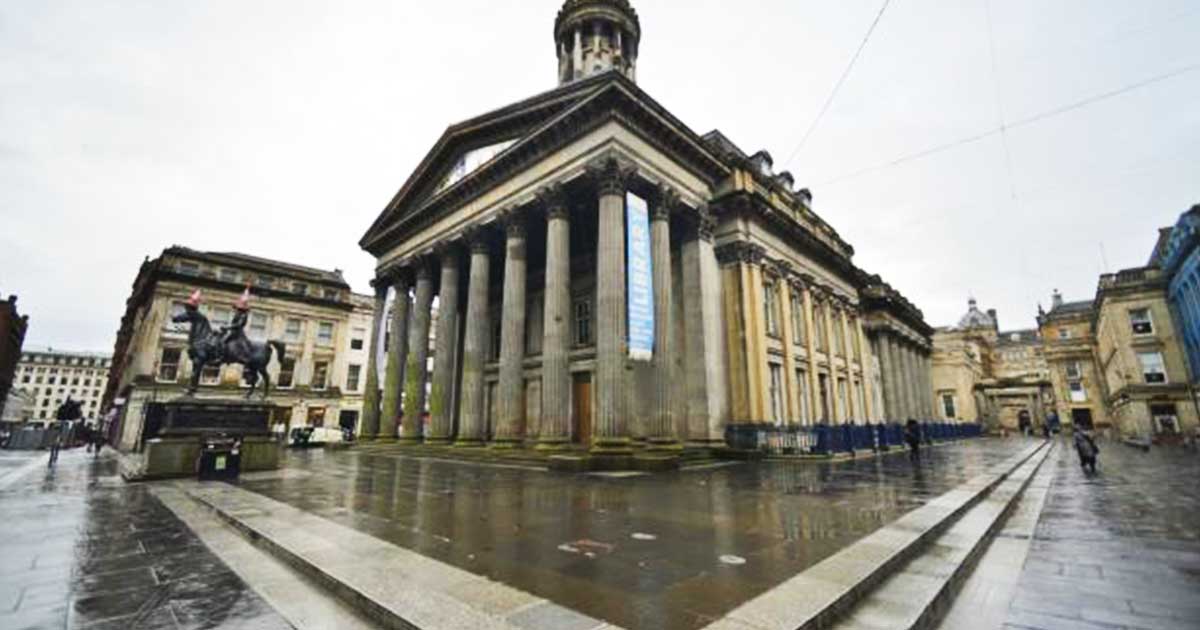Dylan Candlin, from Glasgow, attempted to take his own life at the beginning of March, around about the time people started to address the seriousness of the ongoing Coronavirus outbreak.
At the surface, one can say Dylan had all the elements of a happy, healthy life, with a good career, a large family, and a valuable social circle. No one knew he was dealing with some issues deep inside.
In a statement, Dylan explained:
“I think it’s safe to say that not one person I know would’ve looked at me and had any idea what was going on.”
Dylan’s struggles weren’t based so much on personal insecurities but on a lot of things that were out of his control, such as seeing other people’s negative and harmful behavior.
He described how he often sees the world in a bad place and the outbreak only heightened his fears and anxieties as it spread across countries.
After attempting to end his life, he was brought to the hospital where staff worked to save him. He was later told by doctors he was fortunate he didn’t sustain serious brain damage or he didn’t put himself in a position where he couldn’t live life the same way.
In the weeks since the incident, Dylan focused on his physical and mental recovery and discovered love and support from his family members. He experienced counseling before, though personally didn’t find it helpful. However, he always liked the benefit of speaking out about mental health and issues you may be struggling with.
Dylan narrated:
“[After the attempt], my first step was to do absolutely nothing. Physical recovery takes priority I think and having the space to figure out exactly why you did what you did.”
“Of course, my family was very positive, including my parents who took the time to talk and gave me the space to think when I needed it.”
“In terms of mental recovery, I’m still finding what works best for me… Of course, you need to talk and speak out.”
“A friend of mine who I hadn’t seen in years took an enormous amount of time to talk to me even before I attempted. She wasn’t embarrassed to reach out and spoke honestly. I appreciated that tenfold.”
“You need people around you that are understanding, who genuinely care and who can sometimes be brutally honest as well.”
To recover, Dylan has been self-isolating in a way even before the government started to urge people to stay indoors. On the day he planned to hang out with his friends, Prime Minister Boris Johnson already announced all pubs, clubs, and restaurants were to be closed, and Dylan has been isolating again since.
While a lot of people around the world have found self-isolation to be frustrating and challenging, Dylan welcomes it as a ‘once-in-a-lifetime free reset button’.
A spokesperson from the Suicide prevention charity Samaritans explained:
“We know that human and social connection is vital for our mental health, and that uncertainty and change can also affect our mental wellbeing.”
“There are a lot of unknowns right now about the immediate and long-term future, and the latest government guidance for us to stay at home means that we won’t have the physical, social contact that some of us are used to.”
“If feelings of loneliness and isolation persist over time, it can pose a significant risk to our health and wellbeing so it is essential that we look after our mental health and don’t lose the power of human connection.”
“Our ability to adjust to our circumstances does influence our mental health and wellbeing, so while we can’t always be in control of what is going on around us, we can work on how we think about it and what we do.”
“Paying attention to how we are feeling and prioritizing our needs, whether it’s a physical or emotional need is hugely important. Also the simple act of showing others that you care and doing what you can for others can have a great impact on your wellbeing.”
For Dylan, measures of social distancing have come at the ‘perfect’ time as they are allowing him to re-evaluate what is important and plan for when the world is back to normal.
It has led him to be more appreciative of everyday life, and he wishes others to feel the same.
He further explained:
“It’s just natural when your daily routine or hobbies or whatever else is taken away from you and you don’t know when you’ll get it all back.”
“I know I appreciate the essential workers more than ever and I’m glad they know that everyone else does too with the support and attention they rightfully deserve.”
Dylan is aware that what works for him might not work for everyone who is struggling, but he recommended using this time to put things into perspective, where possible.
It may feel like the world is a particularly uncertain place at this time, but it’s important to remember that the things that ground you, the most important things like friends, family, hobbies, and interests, are still there.
Engaging with and focusing on the most important things can help create a more manageable atmosphere, and in turn, create a positive experience out of an otherwise tough situation.







